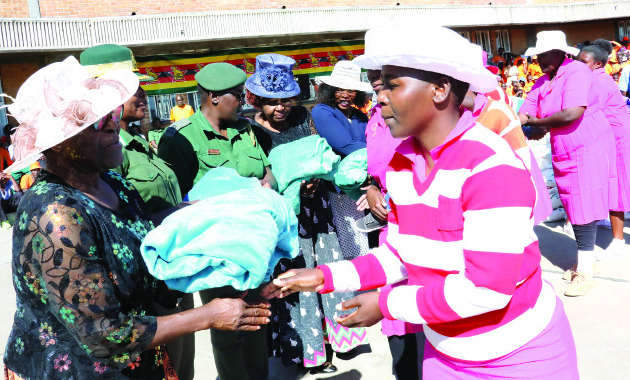Mpilo MRI scan takes first patients

Thandeka Moyo-Ndlovu, [email protected]
IN 2020, Thamsanqa Nyathi (15) developed sudden headaches, which were diagnosed as a brain tumour, a condition that brought serious changes to his life.
He went for surgery that same year to address the headaches but the condition recurred, forcing him to undergo another operation, which saw him spending more than a month at Mpilo Central Hospital’s Intensive Care Unit.
After spending another month at the general hospital ward, specialists recommended that Thamsanqa gets an MRI scan last year in July, which was going to cost the family US$500 at private service providers as the service was not available in any public facility.
While he was recovering, doctors kept emphasising the need for an MRI scan for them to effectively administer treatment.

Thanks to the Government’s efforts in improving health service delivery, Thamsanqa was one of the first clients to use the state-of-the-art MRI machine, which was recently installed at Mpilo Central Hospital in Bulawayo. The MRI was officially opened to members of the public on Monday.
MRI is a non-invasive medical imaging test that produces detailed images of almost every internal structure in the human body, including the organs, bones, muscles and blood vessels.
MRI scanning creates images of the body using a large magnet and radio waves. It comes with several advantages compared to CT scans as it is less harmful to patients and provides clearer depictions, which lead to the correct diagnosis.
Mpilo Central Hospital is a 1 000-bed facility, the second biggest in Zimbabwe, and services the southern region, which includes Bulawayo, Masvingo, Midlands, Matabeleland North and South provinces. A similar scan is stationed at Parirenyatwa Group of Hospitals in Harare to service the northern region.

The first patient to get a scan from the machine Thamsanqa and his father Mr Ndabezinhle Nyathi
In an interview after witnessing Thamsanqa do the MRI on his brain, his father, Mr Ndabezinhle Nyathi, said he was delighted that his son was finally assessed.
“We had to do scans after diagnosis and doctors operated on him for the second time in June last year as the problem resurfaced, resulting in my son staying in the ICU for one month,” he said.
“From ICU, he stayed another month in the ward and could not walk properly or even talk, but he has since improved.
“As we were coming for reviews, doctors suggested that we do an MRI scan but the charges we would get from private hospitals were just way beyond our reach.
“As a Bulawayo resident, I am happy and call upon radiographers to take good care of this equipment so that even after many years, we can still benefit the people,” he said.
“I know my son will now get help as this scan will help doctors locate the tumour and get rid of it once and for all so that my son recovers. This condition affected his studies, he was supposed to do Form Three last year but didn’t attend school the whole year. He has missed out, but I am grateful he is alive and recovering.”

Mpilo central hospital PNO Sithole
Mpilo senior radiographer Dr Philisani Sibanda said a pilot study was done and completed before the service was opened to members of the public.
“It’s strictly by booking and for one to be eligible. They need to have undergone other background investigations that support the need for MRI and also a request from a specialist as we will be using those request forms to book patients,” he said.
“We are planning to work on six patients per day although this may change with time and soon, we are hoping that the chief medical officer will approve the charges, which we know will bring relief to the public who for years could not afford MRI.”
Mpilo clinical director Professor Solwayo Ngwenya commended the Government for its continued effort to provide quality healthcare services to the public.

Professor Solwayo Ngwenya
“The Government is making great efforts to avail some of the vital resources needed for patients’ care by providing machines such as the MRI scan, which is now accessible at our hospital,” he said.
“The MRI scan will help in giving better quality service delivery to the patients despite the challenges that we face. Step by step, such efforts will result in the overall improvement in patient care.”











Comments